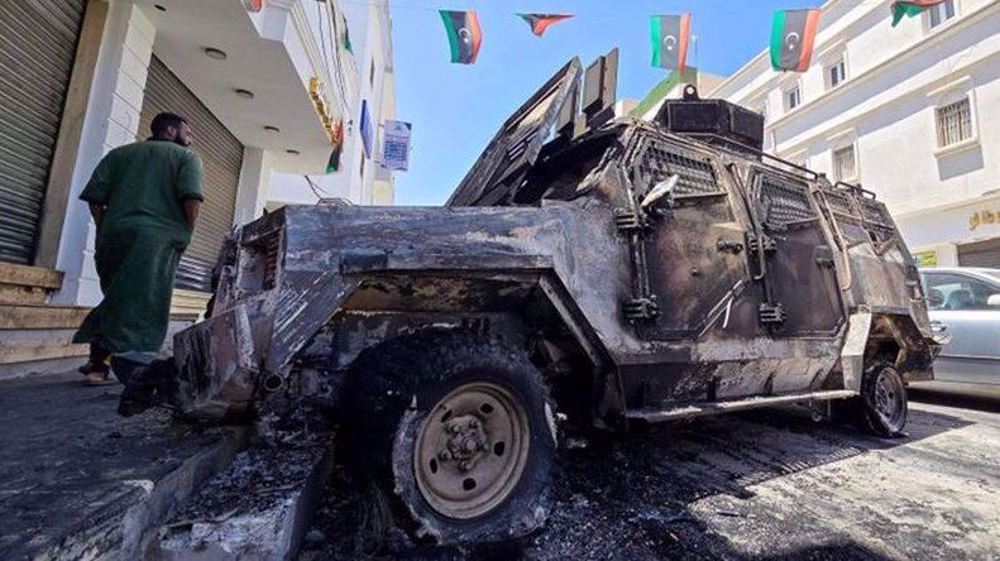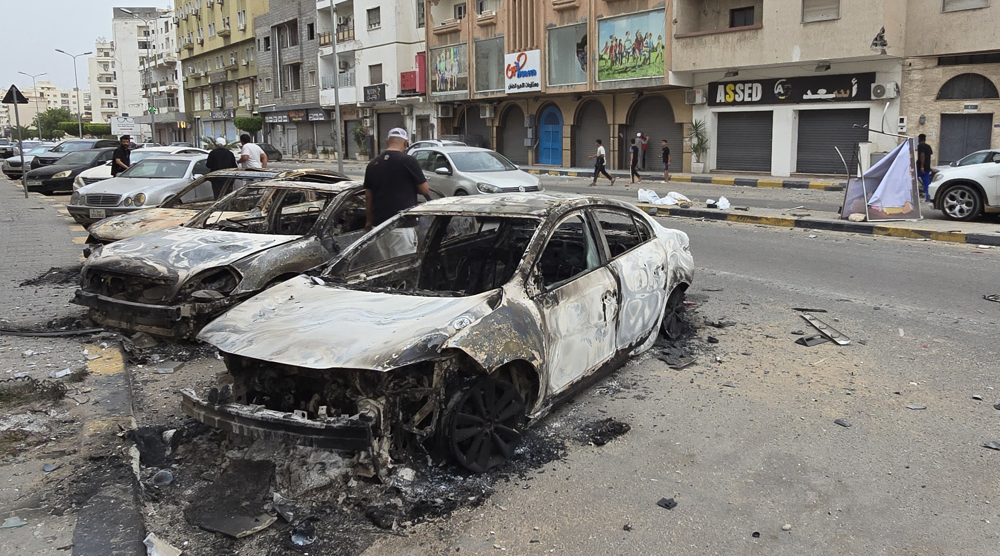The United Nations refugee organization has announced that it is "alarmed" by the level of violence in Libya's capital, Tripoli.
Violent clashes in Tripoli put civilians in grave danger and risk mass displacement, the UN's International Organization for Migration (IOM) said on Thursday, expressing deep concern over rising violence in the past days in Tripoli.
Fighting between forces loyal to Prime Minister Abdulhamid Dbeibah and rival militias has left at least six people dead and dozens wounded over the past three days.
Clashes first erupted on Monday following the killing of major militant chief Abdelghani al-Kikli and the sudden defeat of his Stabilization Support Apparatus (SSA) group by the 444 Brigade, a force aligned with Dbeibah.
The following day, the UN-recognized government said it had begun asserting control. A ceasefire also came into effect across Tripoli on wednesday.
Media reports citing eyewitnesses, however, said the fighting continued as SSA loyalists said Kikli's death "only strengthens our resolve to relentlessly pursue those involved wherever they are."
The IOM called on the fighting sides to cease hostilities at once to prevent a humanitarian crisis, saying it is "alarmed by the recent escalation of violence" and the "severe risk of mass displacement and danger to civilians."
Media reports said it was the worst fighting in years, sparking fears the North African nation will be dragged into widespread conflict as the government cracks down on rival militias.
Since the Western-backed revolt that toppled and killed longtime leader Muammar Gaddafi in 2011, the North African country has been split between the UN-recognized government in Tripoli, led by Dbeibah, and the rival Tobruk-based government in the east, controlled by General Khalifa Haftar, commander of the Libyan National Army (LNA).
The conflict has turned into a regional proxy war fueled by foreign powers pouring weapons and mercenaries into the country.
Turkey has been propping up the UN-backed government against Haftar forces, which are being backed by the United Arab Emirates, Egypt and Jordan.
On Thursday, Tripoli’s schools and university, the airport and its harbor remained closed as residents weary of war hunkered down in their homes.
Businesses and shops were shuttered as well, except for a few stores in outlying areas that said they were encountering shortages.
"Whether these clashes serve to undermine or consolidate Dbeibah's authority remains an open question," wrote the International Crisis Group's Claudia Gazzini.
"Either way, residents of Tripoli are yet again victims of violence wrought by forces beyond their control."



No comments:
Post a Comment